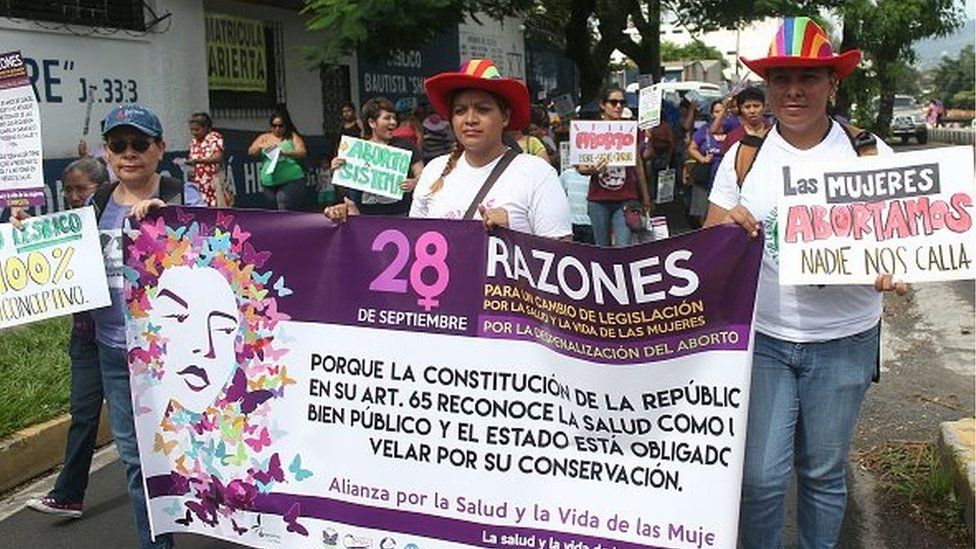Abortion laws may be relaxed for rape cases in El Salvador
- Published

Rape victims in El Salvador may be allowed to have abortions under proposals put forward by the governing party.
The left-wing Farabundo Marti Liberation Liberation Front (FMLN) wants to allow abortion in cases of rape, risk to the mother's life or if the foetus is unviable.
The practice is currently completely banned in El Salvador.
The FMLN will need the support of an extra 12 lawmakers to pass the bill.
The bill was backed by the president of Congress, Lorena Pena, who proposed that women whose life was at risk or those who had been raped or trafficked be allowed to end their pregnancy.
"It's a duty of legislators to give women a chance to save their lives, so that they don't die in those circumstances. It [the bill] is also meant to take into account the impact giving birth has on girls who have been raped," she said.
Opposition lawmaker Ricardo Velasquez Parker said the FMLN's proposal was an attempt to divert attention away from the financial problems of he government, which is facing a massive deficit.
Mr Velasquez backs a rival bill which would have abortion punished with up to 50 years in jail, the same as aggravated murder.
Under current Salvadorean law, anyone who is found to have "provoked, allowed or carried out an abortion" can be sentenced to between two and eight years in prison.
El Salvador is not the only Latin American country with a strict abortion ban. Chile, the Dominican Republic, Honduras and Nicaragua also do not allow abortions under any circumstances.
- Published25 September 2014
- Published4 June 2013
- Published31 May 2013